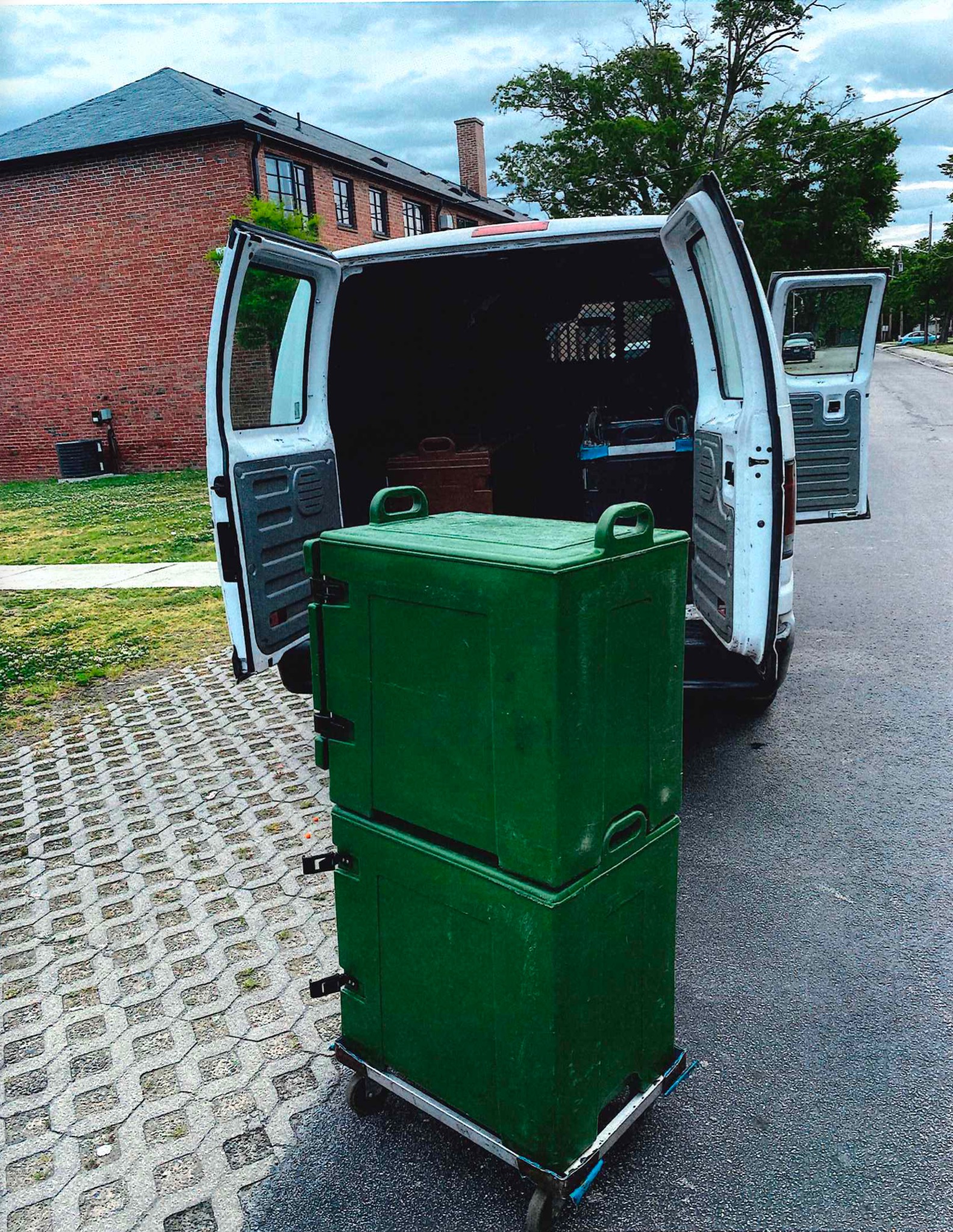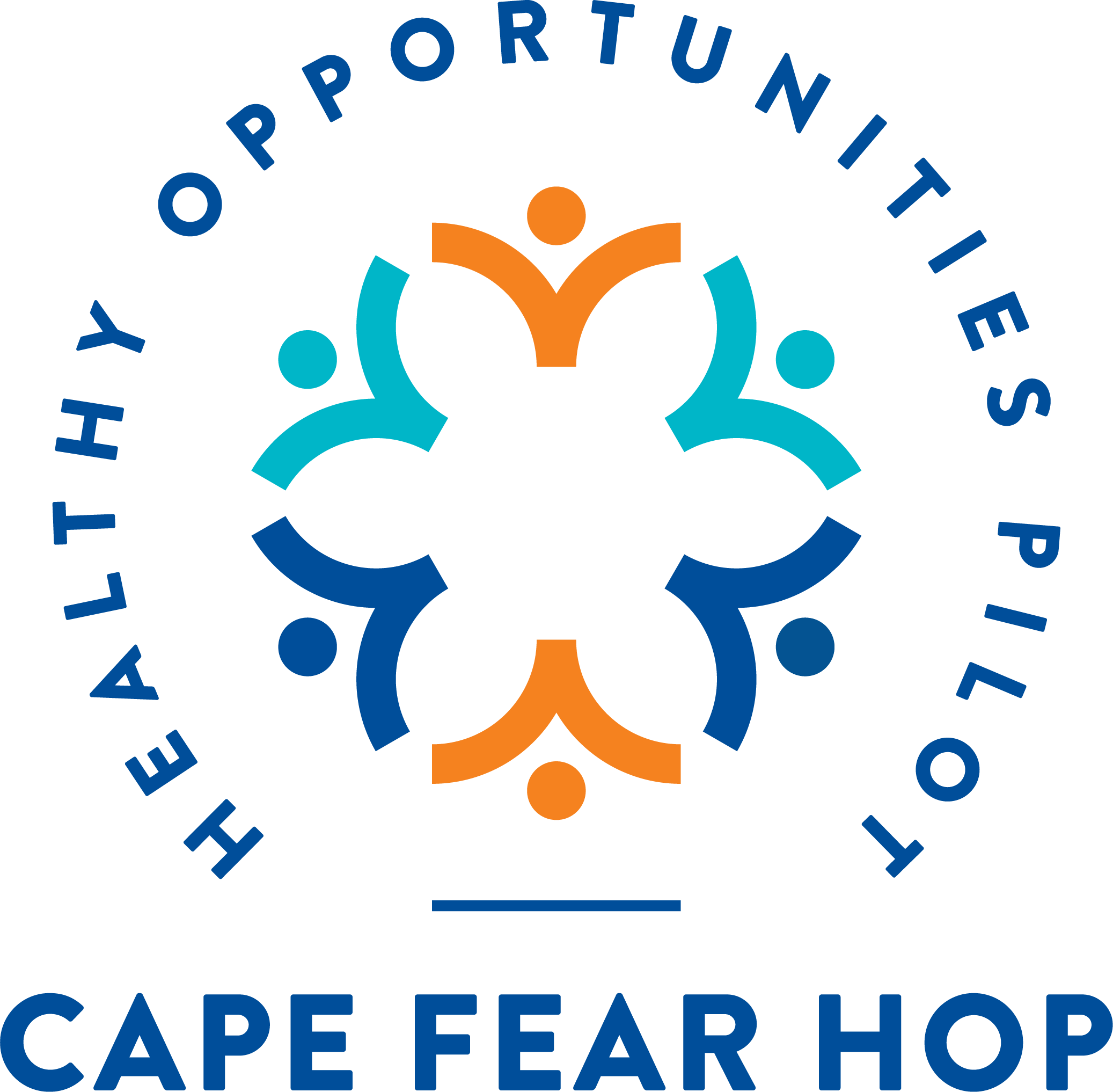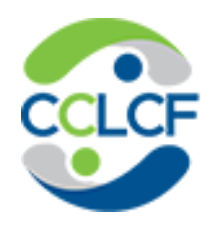
HOP FAQ
Who is Community Care of the Lower Cape Fear?
Community Care of the Lower Cape Fear (CCLCF) is changing the healthcare experience. CCLCF brings over 18 years of experience providing locally based care management with a proven strategy for health care quality improvement and cost reduction to southeastern North Carolina. We work with prepaid Health Plans, ACOs, practices and providers to improve patient outcomes, experience, and satisfaction. CCLCF is an independent, 501(c) (3) nonprofit and a National Committee for Quality Assurance (NCOA) accredited organization.
As part of the NC Medicaid transformation, the federal Centers for Medicare & Medicaid Services approved a groundbreaking pilot program called Healthy Opportunities Program (HOP). Through 2024 with potential for extension, NC DHHS selected three HOP pilot regions with up to $650 million in Medicaid funding to pilot services related to housing, food, transportation, and interpersonal safety to directly impact the health outcomes and healthcare costs of Medicaid beneficiaries. Community Care of the Lower Cape Fear was one of the three Network Leads chosen to pilot this program.
What are Healthy Opportunities Pilots (HOP) of the Lower Cape Fear?
As a part of North Carolina’s transition to NC Medicaid Managed Care, the North Carolina Department of Health and Human Services (NCDHHS) received authority from the Centers for Medicare & Medicaid Services (CMS) to conduct the Healthy Opportunities Pilot Program.
The Pilots create a unique opportunity to test the impact on health outcomes and health care costs by using Medicaid funds to pay for non-medical services specifically related to food, housing, transportation, interpersonal safety, and toxic stress. Additionally, the Pilots will provide a mechanism for payers, providers, and human service organizations (HSOs, e.g., community-based organizations or social service agencies) to have the tools, infrastructure, and financing to integrate non-medical services into the delivery of health care for eligible Medicaid members.
What are the goals of the Pilot Program?
● Evaluate the effectiveness of select, evidence-based, non-medical interventions and the role of the Healthy Opportunities Network Lead in improving health outcomes and reducing health care costs for high-risk NC Medicaid Managed Care members.
● Leverage evaluation findings to embed cost-effective interventions that improve health outcomes into the Medicaid program statewide, furthering NCDHHS’ goals for a sustainable Medicaid program; and
● Support the sustainability of delivering non-medical services identified as effective through the evaluation, including by strengthening the capabilities of Human Services Organizations (HSO) and partnerships with health care payers and providers.
What are the Healthy Opportunities network leads? What is their role?
Healthy Opportunities Network Leads are organizations embedded in their communities that will help the Department implement the Healthy Opportunities Pilots. Network Leads will connect the health care and social service sectors.
Their key responsibilities include:
● Establish, manage, and oversee a network of HSOs, including assessing HSO performance.
● Ensure an adequate network of HSOs to meet Medicaid members’ needs through the Pilots and ensure HSOs are delivering high-quality Pilot services.
● Distribute capacity-building funding to HSOs.
● Assist HSOs with invoicing for Pilot services and routing invoices to a member’s PHP for adjudication and payment.
● Provide technical assistance and conduct quality improvement activities with its HSO network.
● Facilitate learning collaboratives for HSOs, PHPs and care management entities participating in the Pilot.
What regions are covered by the Healthy Opportunities Pilots?
The Department conducted a competitive selection process to solicit Healthy Opportunities Network Leads and their regional networks.
The following regions were awarded on May 27, 2021:
Community Care of the Lower Cape Fear: Bladen, Brunswick, Columbus, New Hanover, Onslow, &. Pender Counties
What services will be offered through the Healthy Opportunities Pilot?
The Department defined a set of 29 services to offer through the Pilots in the Department’s four priority domains: food, housing, transportation, interpersonal safety, and toxic stress. The Department will use three types of reimbursement for pilot services: fee-for-service, per-member-per-month (PMPM) payments and cost-based reimbursement up to a cap.
What are the eligible requirements to be a part of the Healthy Opportunities Pilot program?
Healthy Opportunities Pilot services will be provided to eligible North Carolina Medicaid Managed Care members expected to benefit most from them, as determined by Prepaid Health Plans and in accordance with North Carolina Department Health and Human Services standards and guidelines. To be eligible for and receive Pilot services, NC Medicaid Managed Care members must live in a Pilot region (Bladen, Brunswick, New Hanover, Onslow, Columbus, Pender) and have at least one qualifying physical or behavioral health condition and one qualifying social risk factor, as defined by the Department.
What is a Human Service Organization (HSO)?
Human Service Organizations (HSO) are community-based champions in the local regions that were selected to participate to provide non-medical services for Medicaid Managed Care Enrollees through the Healthy Opportunities Pilot (HOP) program. These are area nonprofits, churches, community-based organizations, local government agencies and for profits who already do great work to support our communities. HSO will play a vital role in delivering the 29 pilot interventions to all enrollees.
What is a Social Determinant of Health (SDOH)?
Approximately 90 percent of healthcare spending in the United States is on medical care. While access to high-quality medical services is crucial to health, research shows that up to 80 percent of a person’s overall health is driven by other social and environmental factors and the behavior influenced by them— known as “social determinants of health” or SDOH.

